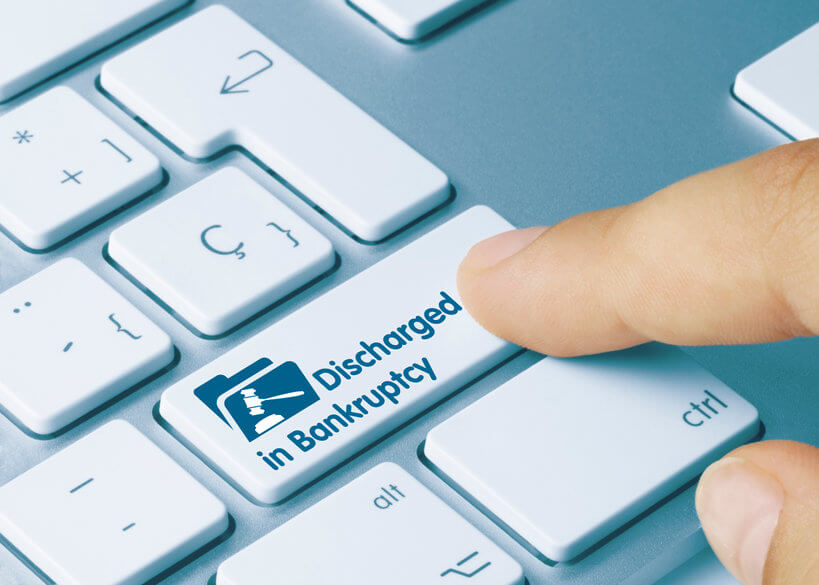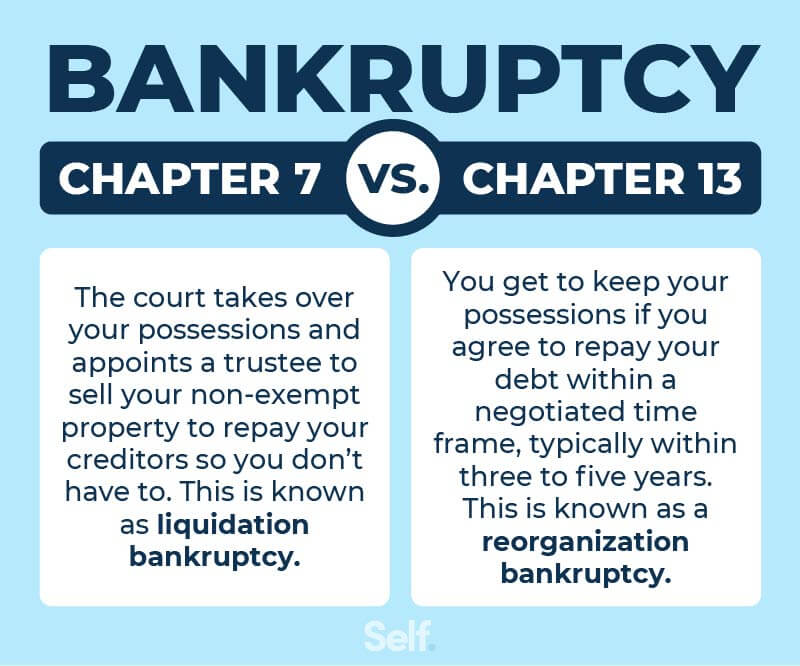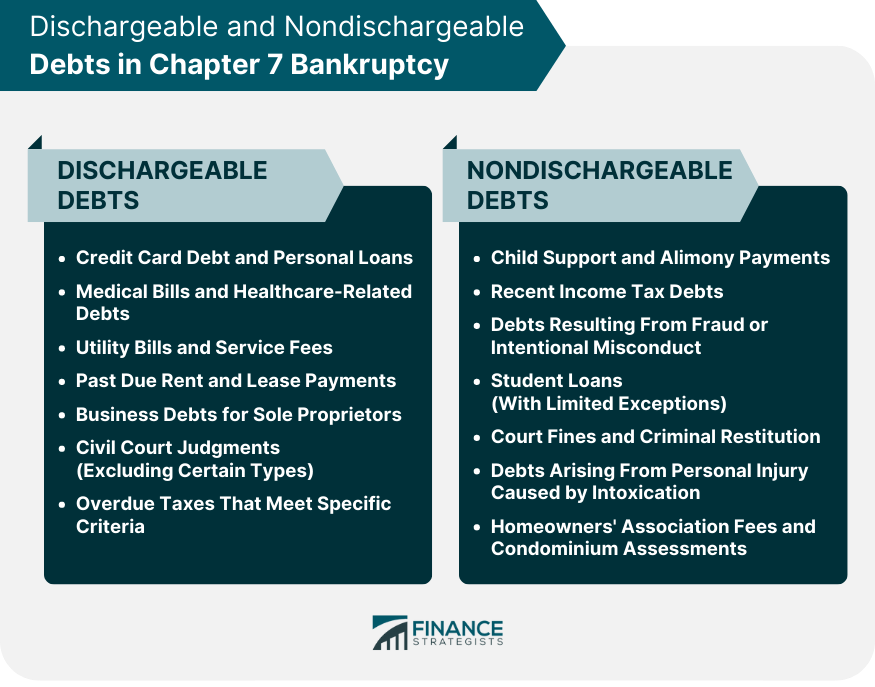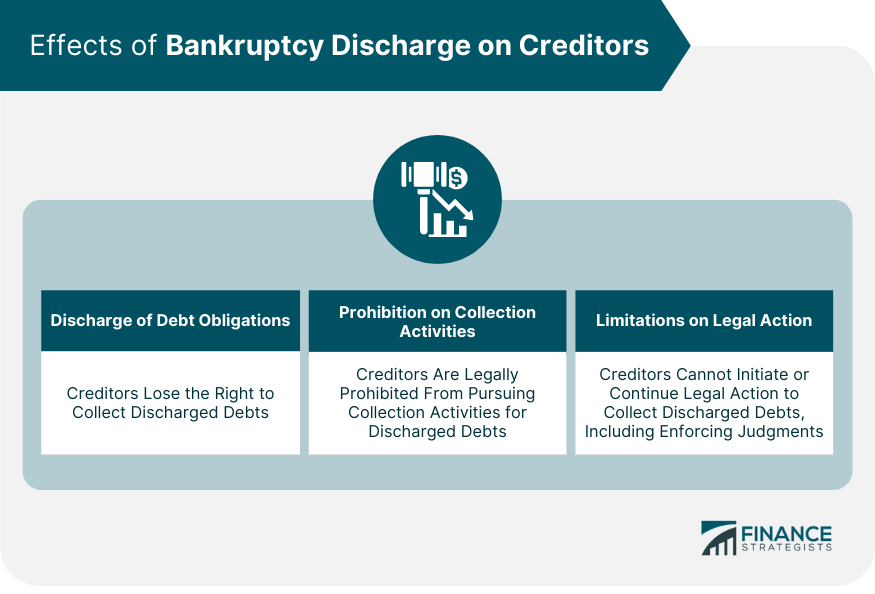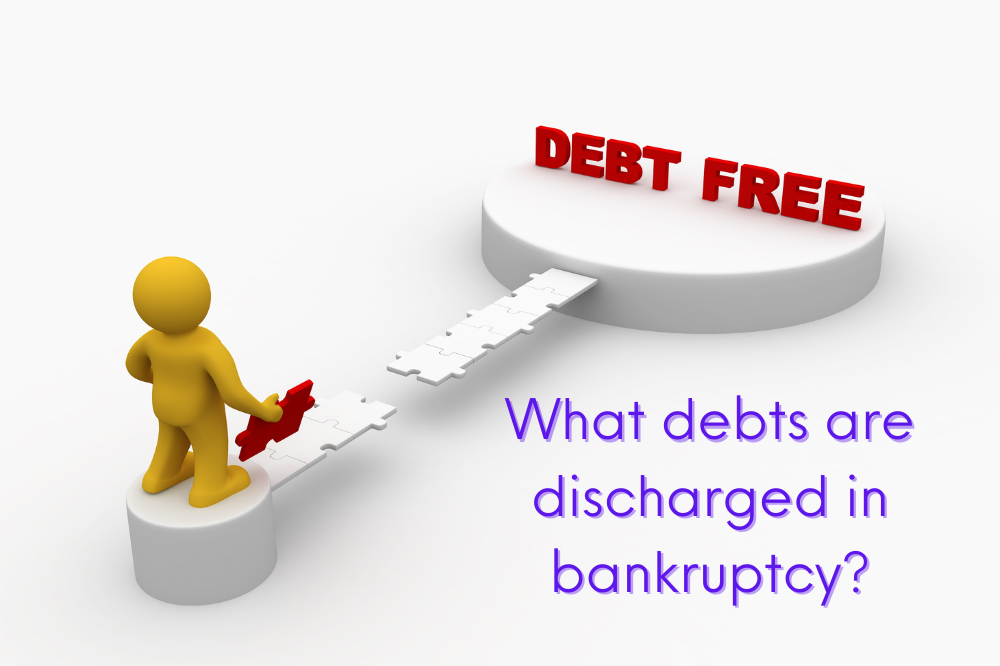What Does Discharge Of Debt Mean
What Does Discharge Of Debt Mean - In other words, when a debt is discharged, the. To discharge a debt means to eliminate the debtor’s legal obligation to repay it. A bankruptcy discharge releases the debtor from personal liability for certain specified types of debts. Discharge (of debts) refers to the process in bankruptcy court, when a debtor is no longer liable for their debts, and the lender is no longer. A discharge releases a debtor from personal liability of certain debts known as dischargeable debts, and prevents the creditors owed those. Simply put, a discharge of debts is a court order that releases you from personal liability for certain debts, meaning you are no longer required to. What is a discharge in bankruptcy?
To discharge a debt means to eliminate the debtor’s legal obligation to repay it. A bankruptcy discharge releases the debtor from personal liability for certain specified types of debts. In other words, when a debt is discharged, the. What is a discharge in bankruptcy? A discharge releases a debtor from personal liability of certain debts known as dischargeable debts, and prevents the creditors owed those. Simply put, a discharge of debts is a court order that releases you from personal liability for certain debts, meaning you are no longer required to. Discharge (of debts) refers to the process in bankruptcy court, when a debtor is no longer liable for their debts, and the lender is no longer.
To discharge a debt means to eliminate the debtor’s legal obligation to repay it. A bankruptcy discharge releases the debtor from personal liability for certain specified types of debts. A discharge releases a debtor from personal liability of certain debts known as dischargeable debts, and prevents the creditors owed those. In other words, when a debt is discharged, the. Simply put, a discharge of debts is a court order that releases you from personal liability for certain debts, meaning you are no longer required to. What is a discharge in bankruptcy? Discharge (of debts) refers to the process in bankruptcy court, when a debtor is no longer liable for their debts, and the lender is no longer.
Chapter 7 Bankruptcy 24 Hour Legal Advice Ask A Lawyer Live Chat
To discharge a debt means to eliminate the debtor’s legal obligation to repay it. A discharge releases a debtor from personal liability of certain debts known as dischargeable debts, and prevents the creditors owed those. In other words, when a debt is discharged, the. Simply put, a discharge of debts is a court order that releases you from personal liability.
Which Debts Are Discharged in Chapter 7 Bankruptcy? Best Bankruptcy
What is a discharge in bankruptcy? A bankruptcy discharge releases the debtor from personal liability for certain specified types of debts. To discharge a debt means to eliminate the debtor’s legal obligation to repay it. A discharge releases a debtor from personal liability of certain debts known as dischargeable debts, and prevents the creditors owed those. Simply put, a discharge.
Debt Discharge What it is, How it Works
A discharge releases a debtor from personal liability of certain debts known as dischargeable debts, and prevents the creditors owed those. In other words, when a debt is discharged, the. Simply put, a discharge of debts is a court order that releases you from personal liability for certain debts, meaning you are no longer required to. What is a discharge.
What does debt is discharged?
A discharge releases a debtor from personal liability of certain debts known as dischargeable debts, and prevents the creditors owed those. Discharge (of debts) refers to the process in bankruptcy court, when a debtor is no longer liable for their debts, and the lender is no longer. To discharge a debt means to eliminate the debtor’s legal obligation to repay.
Bankruptcy Dismissal vs. Discharge What's the Difference and How They
To discharge a debt means to eliminate the debtor’s legal obligation to repay it. A discharge releases a debtor from personal liability of certain debts known as dischargeable debts, and prevents the creditors owed those. What is a discharge in bankruptcy? In other words, when a debt is discharged, the. A bankruptcy discharge releases the debtor from personal liability for.
1040v Discharge Debt Guide Money Economies
Discharge (of debts) refers to the process in bankruptcy court, when a debtor is no longer liable for their debts, and the lender is no longer. What is a discharge in bankruptcy? In other words, when a debt is discharged, the. A discharge releases a debtor from personal liability of certain debts known as dischargeable debts, and prevents the creditors.
What Debts Are Discharged in Chapter 7 Bankruptcy?
Simply put, a discharge of debts is a court order that releases you from personal liability for certain debts, meaning you are no longer required to. A bankruptcy discharge releases the debtor from personal liability for certain specified types of debts. To discharge a debt means to eliminate the debtor’s legal obligation to repay it. In other words, when a.
What Does Bankruptcy Discharged Mean? Condition & Effects
A discharge releases a debtor from personal liability of certain debts known as dischargeable debts, and prevents the creditors owed those. In other words, when a debt is discharged, the. What is a discharge in bankruptcy? Discharge (of debts) refers to the process in bankruptcy court, when a debtor is no longer liable for their debts, and the lender is.
The Chapter 7 Discharge Chapter 7 Bankruptcy Attorneys ARM Lawyers
Simply put, a discharge of debts is a court order that releases you from personal liability for certain debts, meaning you are no longer required to. To discharge a debt means to eliminate the debtor’s legal obligation to repay it. Discharge (of debts) refers to the process in bankruptcy court, when a debtor is no longer liable for their debts,.
What Types of Debt are Discharged in Bankruptcy
In other words, when a debt is discharged, the. Simply put, a discharge of debts is a court order that releases you from personal liability for certain debts, meaning you are no longer required to. What is a discharge in bankruptcy? A bankruptcy discharge releases the debtor from personal liability for certain specified types of debts. A discharge releases a.
In Other Words, When A Debt Is Discharged, The.
A bankruptcy discharge releases the debtor from personal liability for certain specified types of debts. What is a discharge in bankruptcy? Simply put, a discharge of debts is a court order that releases you from personal liability for certain debts, meaning you are no longer required to. To discharge a debt means to eliminate the debtor’s legal obligation to repay it.
Discharge (Of Debts) Refers To The Process In Bankruptcy Court, When A Debtor Is No Longer Liable For Their Debts, And The Lender Is No Longer.
A discharge releases a debtor from personal liability of certain debts known as dischargeable debts, and prevents the creditors owed those.
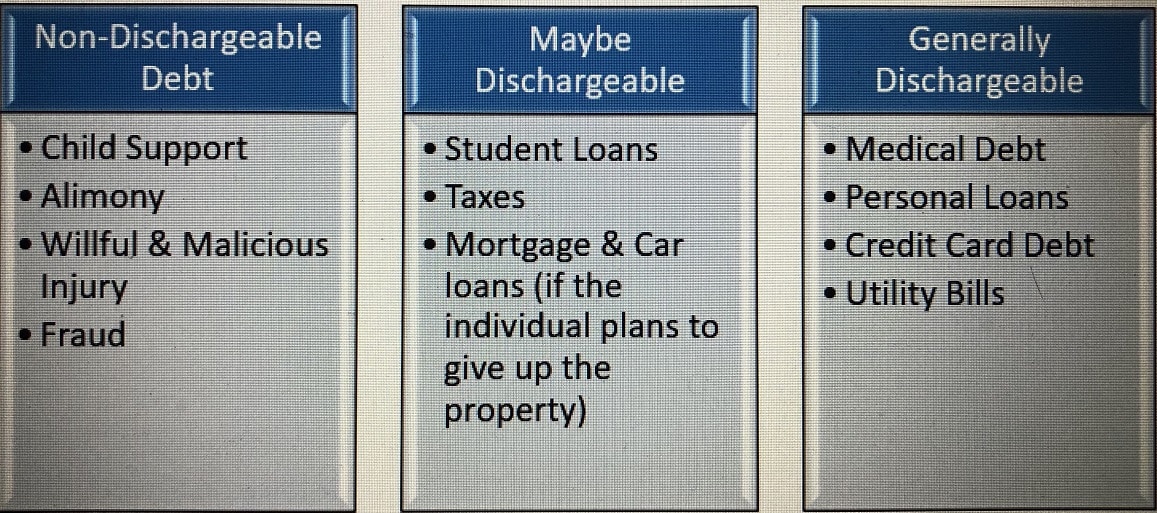

:max_bytes(150000):strip_icc()/finalnew-cd2c2367ef8f4fcdaa1e9218acf86c9d.jpg)
